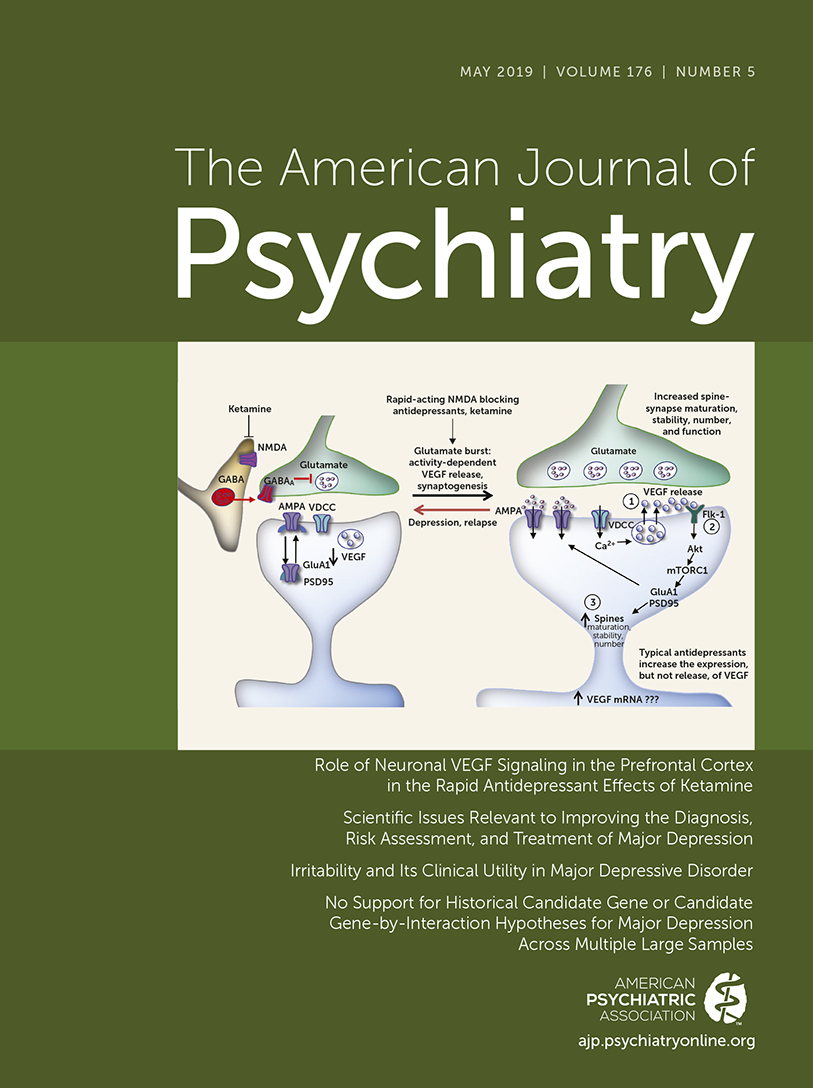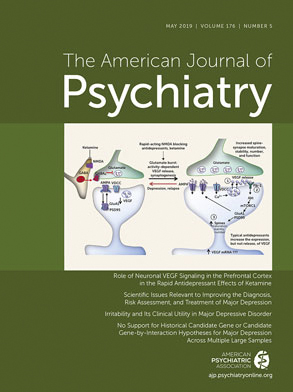Depression usually has its onset during adolescence or early adulthood. Recurrences are common and contribute to its substantial disability. Mild symptoms may be the beginning of a new episode or lingering consequences of a partially remitted episode. Waiting for symptoms to become full blown or leaving mild symptoms untreated may miss opportunities to improve patient outcome. An understanding of the natural course of untreated depression, together with an appreciation of differences between clinical research and practice, facilitates translation of research findings into effective clinical care.
A recent
JAMA viewpoint by Pim Cuijpers, a highly respected researcher, undervalues the effectiveness of depression treatments (
1). While acknowledging that rigorous studies establish efficacy of antidepressants and some psychotherapies, the author states that most patients who improve with these interventions would have recovered without treatment and that therefore treatment might not be necessary for most patients to get better. In his view, patients should be encouraged to wait before starting active treatment or try Internet-based or other self-help interventions that involve no or minimal support from health care professionals.
This perspective raises several questions. Results of placebo-controlled clinical trials of depression underestimate treatment effects. In these trials, placebo conditions are not “no treatment.” Subjects receive comparable assessments across treatment and control conditions, including many hours of clinician contact for assessments and a promise of active treatment at study completion. Personal contacts provided in clinical trials likely have significant short-term benefits that reduce differences in treatment response between groups.
Patients with mild to moderate depression are a heterogenous group. People with a history of severe and recurrent depression for whom current mild or moderate symptoms represent inadequate recovery or impending relapse have a poorer prognosis and are more likely to need specific depression treatment than people having their first episode of milder depression. Unfortunately, clinical trials tend to focus on current symptom severity rather than long-term history that can inform prognosis and treatment selection.
Based on meta-analyses, Cuijpers notes that approximately 54% of patients respond to antidepressants or psychotherapy while approximately 40% respond to placebo. Although these response ratios appear modest, clinical trials are not clinical practice. In short-term monotherapy trials, subjects receive one medication or psychotherapy for 8–16 weeks. In practice, if a patient does not respond or partially responds to treatment, new treatments are initiated. In the Sequenced Treatment Alternatives to Relieve Depression (STAR*D) study, the remission rate increased to 67% over 1 year by switching ineffective treatments after 8 weeks. Even if remission was reached after several trials, it was associated with a better prognosis (
2).
Response rates presented by Cuijpers for medication and psychotherapy were based on receiving a single treatment. Higher response rates are achieved by combining medication and psychotherapy. Response to combined treatment compared with placebo only is about twice as large relative to medication compared with placebo. Because medication and psychotherapy effects are largely independent from one another, each contributes approximately equally to the efficacy of combined treatment (
3).
It is helpful to view antidepressant response rates in the context of other widely used medications in general medicine. A study based on 94 meta-analyses of 48 drugs across 20 general medical disorders and 16 drugs across eight psychiatric disorders indicated that antidepressants were not generally less efficacious than other medications (
4).
Several smaller trials support the effectiveness of Internet-based cognitive-behavioral therapy over usual primary care management for depression. However, results of larger trials have been less promising, and no trials have involved comparisons with antidepressants (
5). Little evidence supports watchful waiting as a first-line approach to depression.
We agree with Cuijpers that developing more effective interventions for depression should be a priority. Developing new treatments that act faster, have fewer side effects, and can more precisely target symptoms would be of substantial benefit. Increasing mental health care coverage and training in effective treatments would also help address critical gaps in care. Requiring training in brief evidence-based psychotherapies in social work, psychology, and nurse practitioner programs would build a workforce capable of delivering these underused interventions.
Over the last several years, an increasing number of adults have accessed treatment for depression. These gains reflect combined efforts of policy makers, advocates, patients, clinicians, and researchers. Studies of treatment implementation (
6), varying service organizations (
7), and health care workers (
8) have played a role. Helping to ensure that adults with depression receive effective care will require integration of results from clinical trials into practice in a manner that is sensitive to the persistent and relapsing course of depression, as well as taking advantage of clinical opportunities to vary the duration, sequence, and combination of interventions in response to patient needs.

